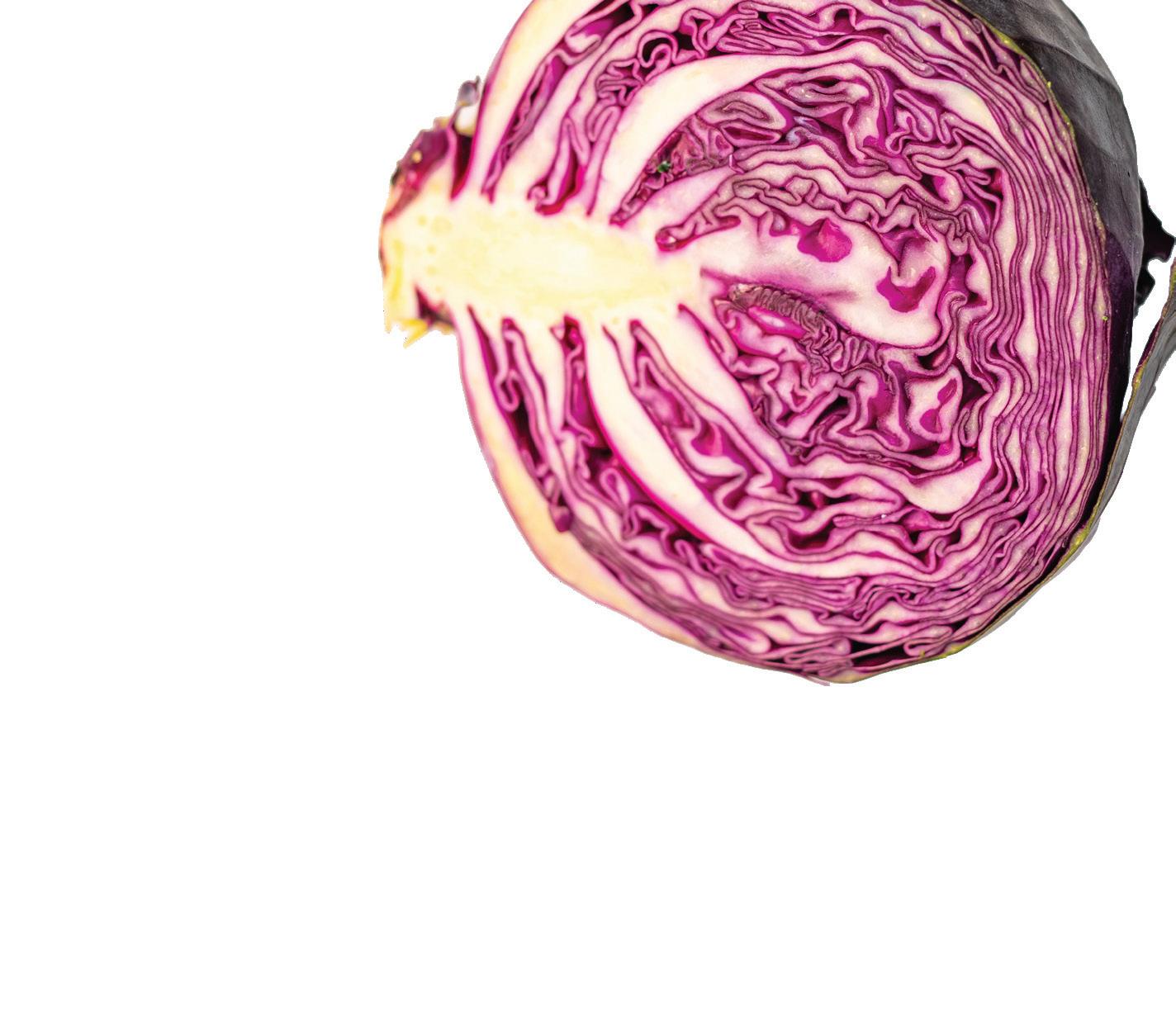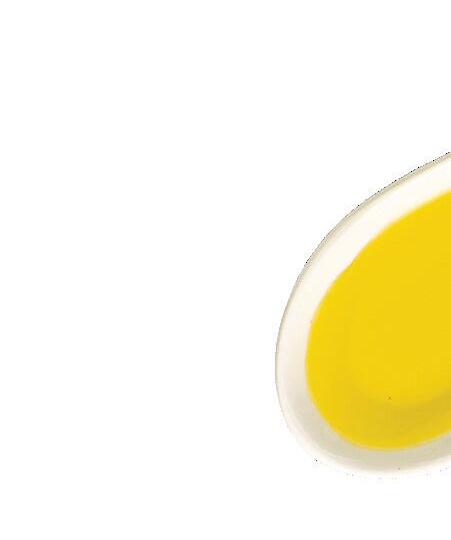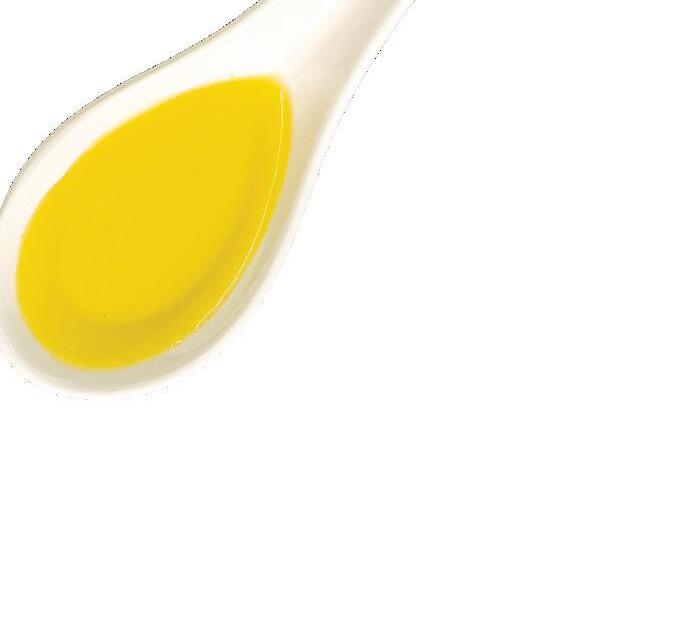




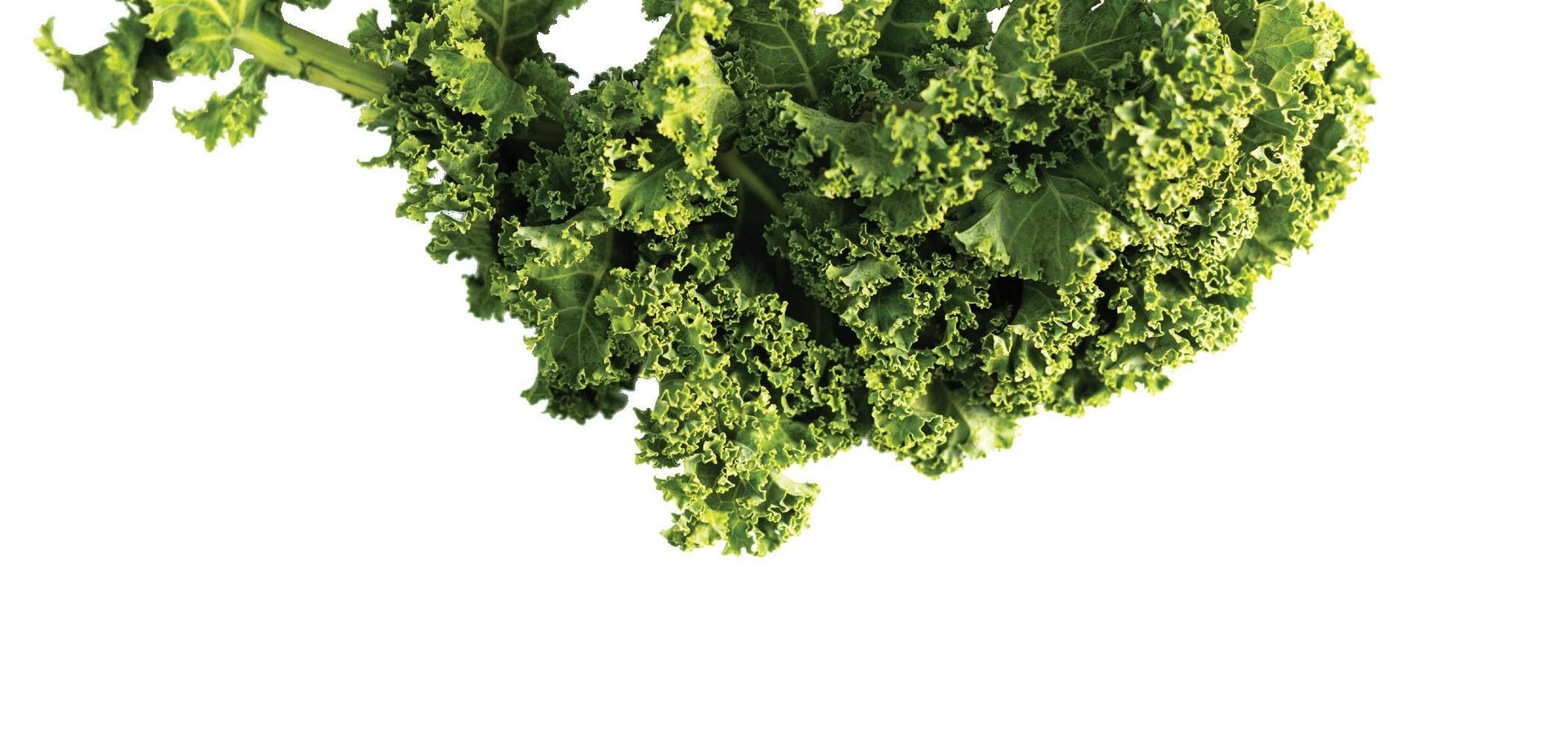







How to launch a produce prescription program in every community

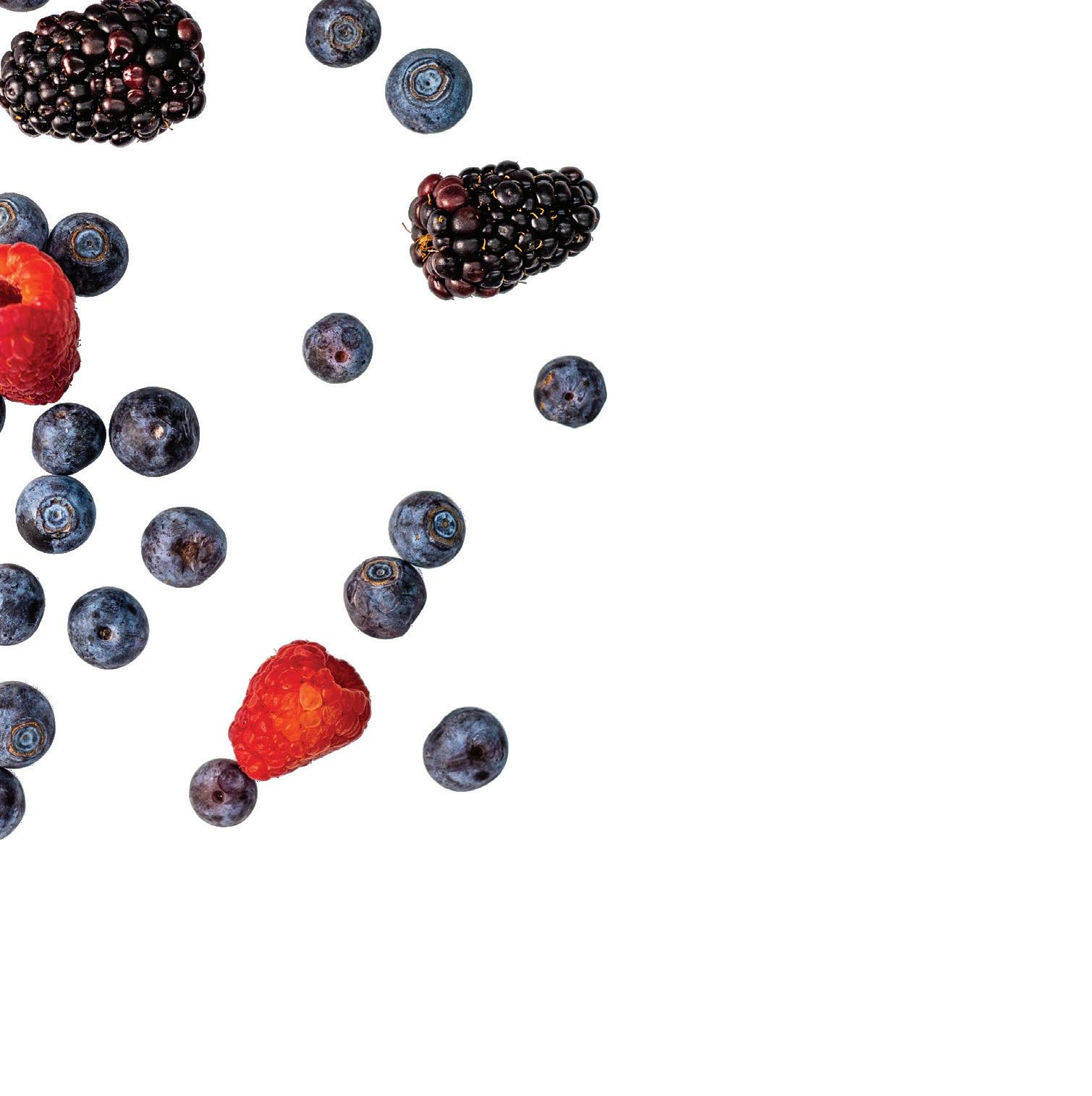
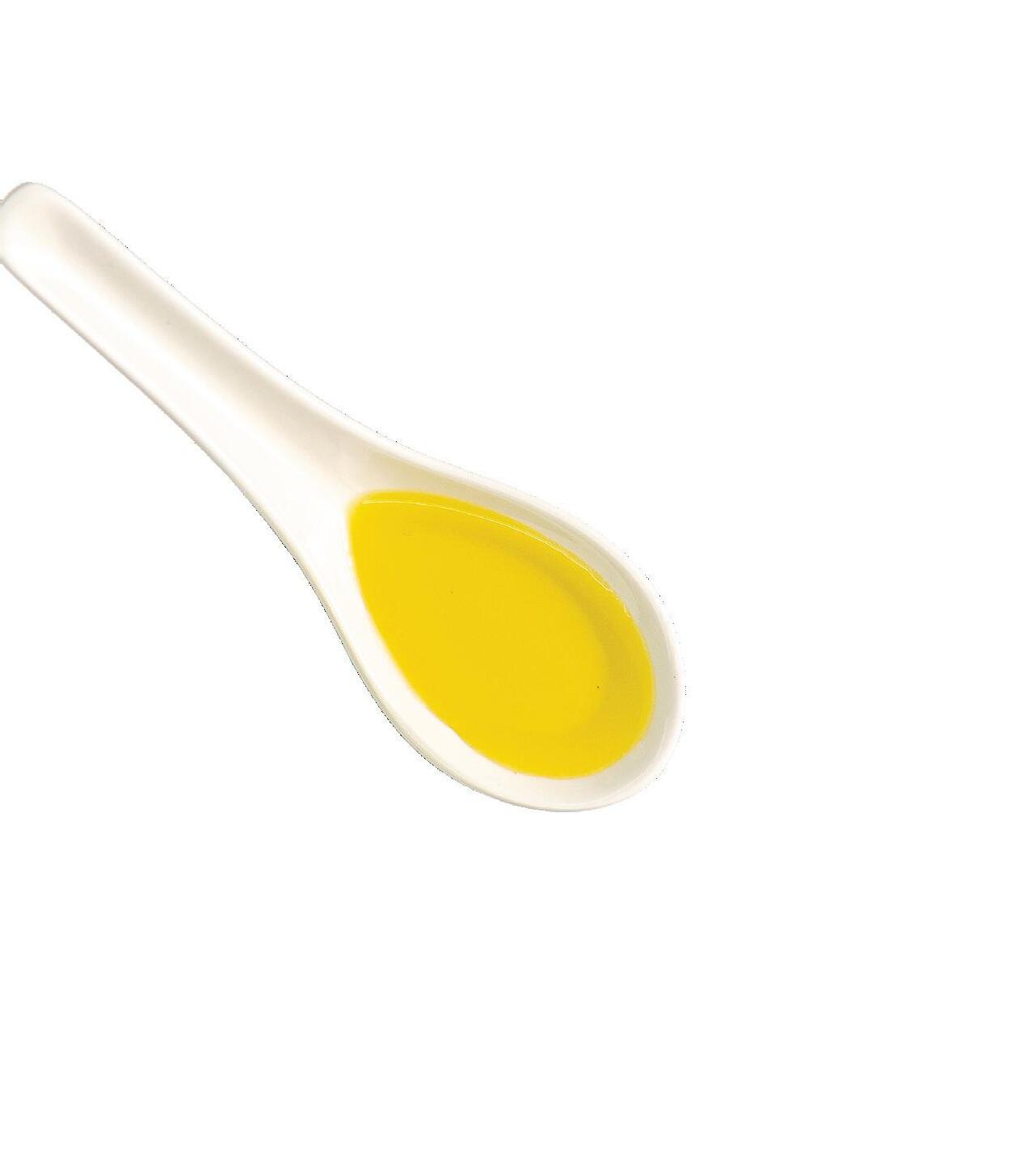



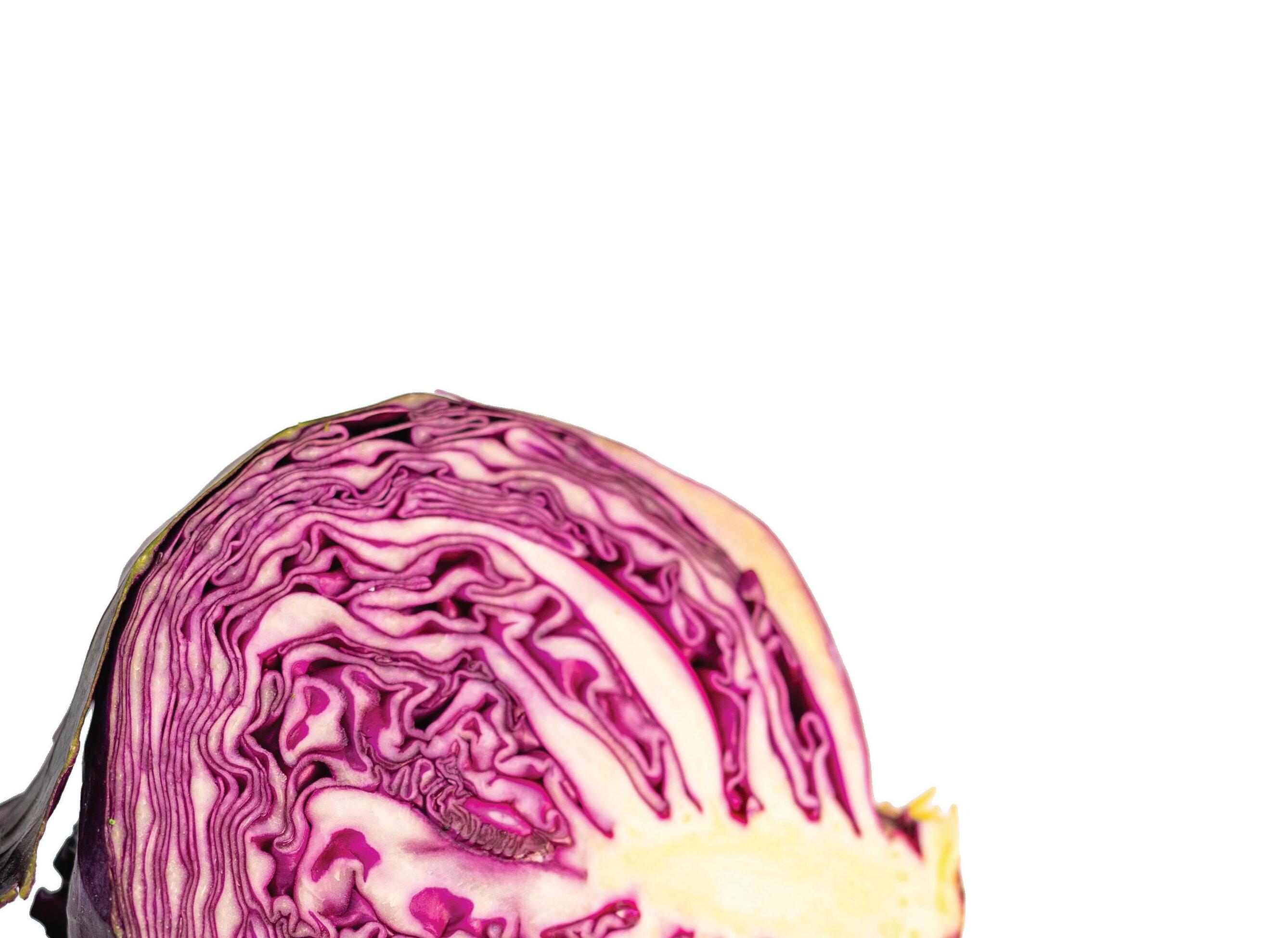




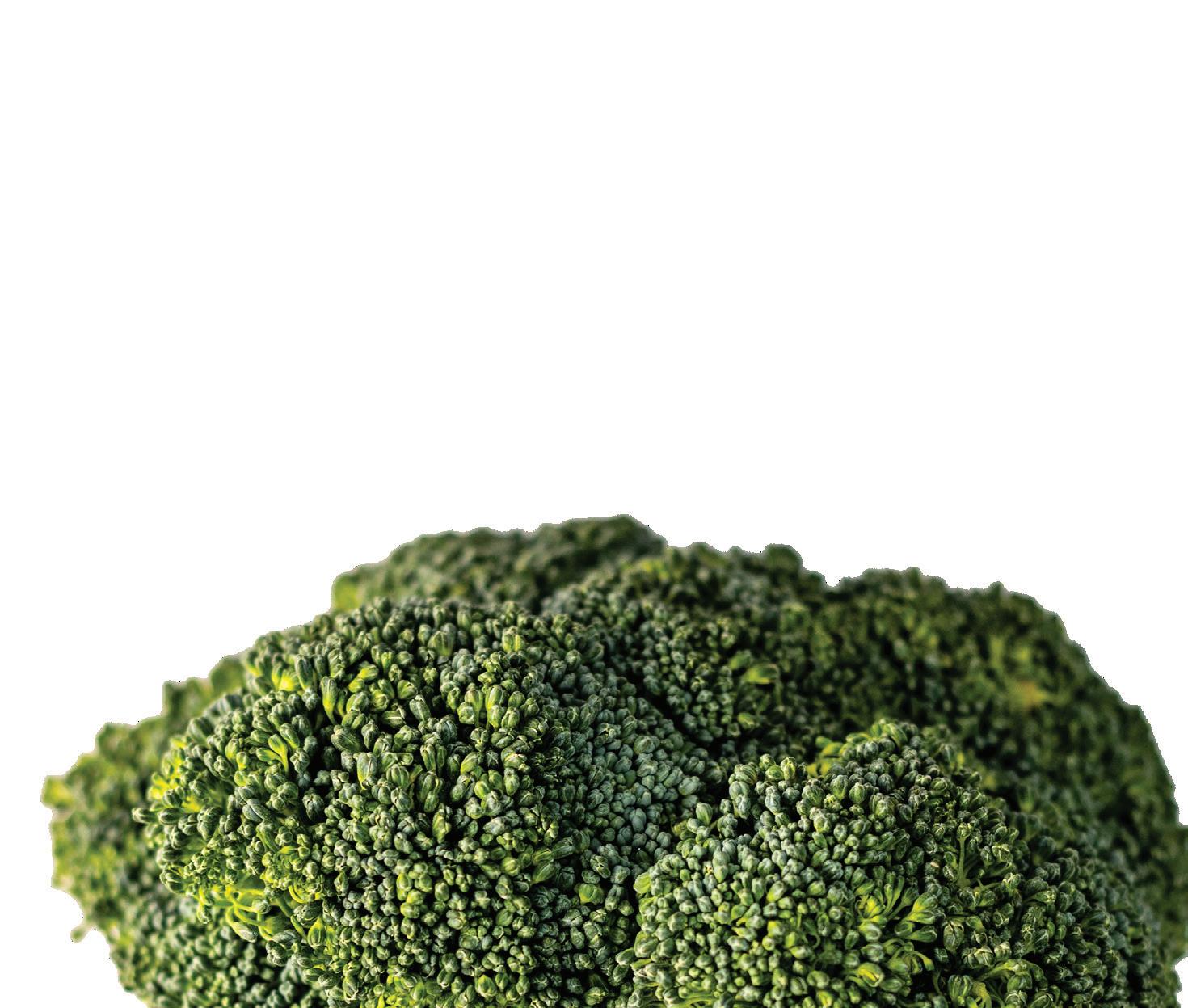
Welcome to the PhytoRx Guidebook!
This guidebook will walk you through the framework of PhytoRx and equip you for a successful launch and sustainable endeavor toward a community with better health. It will outline the specific partners to engage with and describe the role of each in executing this community health initiative
Let’s improve lives together!
As a Primary Care Provider for 20 years, I understand the power of diet in the management of chronic disease and the value of a recommendation from a healthcare provider. Patients want to live the healthiest life they can and sometimes need help to make that a reality. When I joined the Extension team at the Plants for Human Health Institute and began to learn more about phytochemicals, I knew that healthcare providers needed this information to improve the health of their patients. Lifestyle changes are the first line treatment for chronic disease and can greatly affect symptoms and disease course. The name PhytoRx was inspired by the idea of prescribing phytochemicals from specific fruits and vegetables as part of the treatment plan to improve patient health.
Ready to dive in?

Cheri Granillo, DNP, FNP-BC
Extension Associate
Translational Nutrition Program Manager
Plants for Human Health Institute
North Carolina State University
PhytoRx is a collaborative community health program that improves nutrition education for healthcare providers and empowers community members to make healthier choices utilizing the resources already available in their community.
Phytochemicals are chemical compounds naturally made by plants. These compounds protect plants from environmental stressors and they can have a positive effect on human health. Some of the phytochemical groups that have the most impact on human health are anthocyanins, carotenoids and isothiocyanates.
shows...
...that individuals are more likely to enact a behavior change if it is recommended by their healthcare provider.1
As we understand more about phytochemicals and the ways that they affect the body, we are better able to more specifically target disease processes, similar to how we think of active ingredients in medications. Consider a future where a treatment plan may include a daily dose of phytochemicals.
The PhytoRx Produce Prescription is used much like a pharmaceutical prescription. It is a tool to reflect a conversation between a healthcare provider and a patient. The provider and patient can decide on phytochemicals and foods to adjust in the patient’s diet based on their health status. (See example on page 13.)
The goal of this produce prescription program is not simply to increase consumption of fruits and vegetables by giving a prescription (or voucher) to support the procurement of fruits and vegetables. The goal is to influence choice in dietary practice resulting in long-term behavior change.
Research shows...
...that fruits and vegetables are a critical part of a healthy diet, but most Americans consume far less than the recommended amount for optimal health.2
What’s the PhytoRx difference?
PhytoRx-trained providers offer a specialized prescription based on the phytochemical content in certain fruits and vegetables and how those phytochemicals work in the human body to prevent/treat disease or improve health status.
There is a pressing need to make nutrition training a focus of clinician education.3
Educating patients about nutrition is important to long-lasting nutrition behavioral changes and health outcomes.5
Extension programming is reaching out to healthcare practices across the nation to collaborate in the healthcare and education of the population.7
A 2023 study of 22 fruit and vegetable prescription programs across the US showed a significant reduction in A1C in people with diabetes and a decreased blood pressure in those with hypertension.4
National grants support Extension programs that function to improve chronic disease outcomes.6

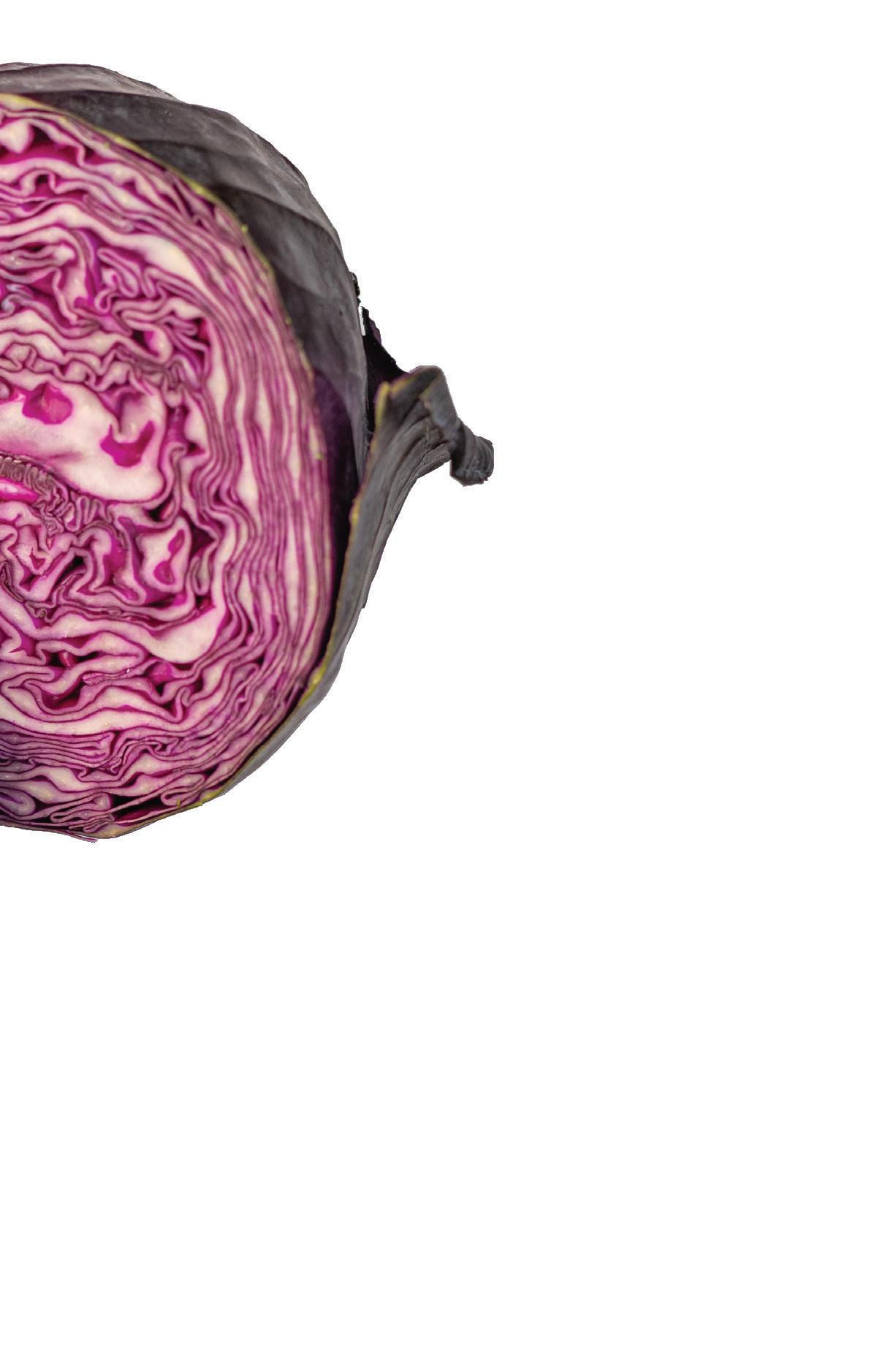

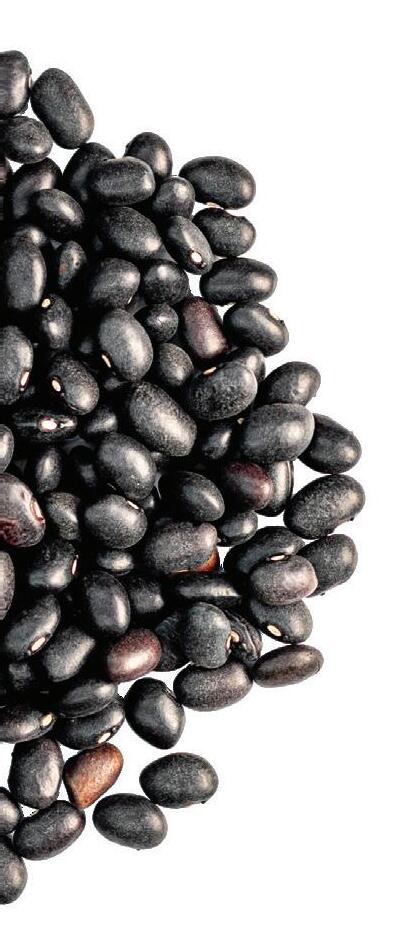
Small changes can make a big difference and have a snowballing effect on an individual’s commitment to healthy choices. Small “wins,” like a lower A1C (improved diabetes maintenance) or reduced cholesterol levels, can be enough to sustain motivation to stick to healthy changes. When one person in a household sees a health benefit, it can have a ripple effect on the other members of the household. It could be as simple as the foods available (or unavailable), or it could be a more involved meal plan to accommodate the necessary diet changes.

Healthcare providers will be equipped with knowledge and resources to offer meaningful, actionable guidance for a healthy diet, by prescribing foods that are most beneficial for a patient’s health needs. PhytoRx delivers continuing education that fills a knowledge gap, allowing providers to offer specific dietary recommendations rather than the overly vague directive to “improve your diet.”
Despite many community partners having a shared goal of supporting a healthy community, those same partners often operate independently. It may seem “outside the box” to build community partnerships, but this is where the strength of PhytoRx lies. By interlocking our areas of expertise, we build a stronger network that helps each operation meet the shared goal of a healthier community by reinforcing healthy eating habits on the pathway to success.



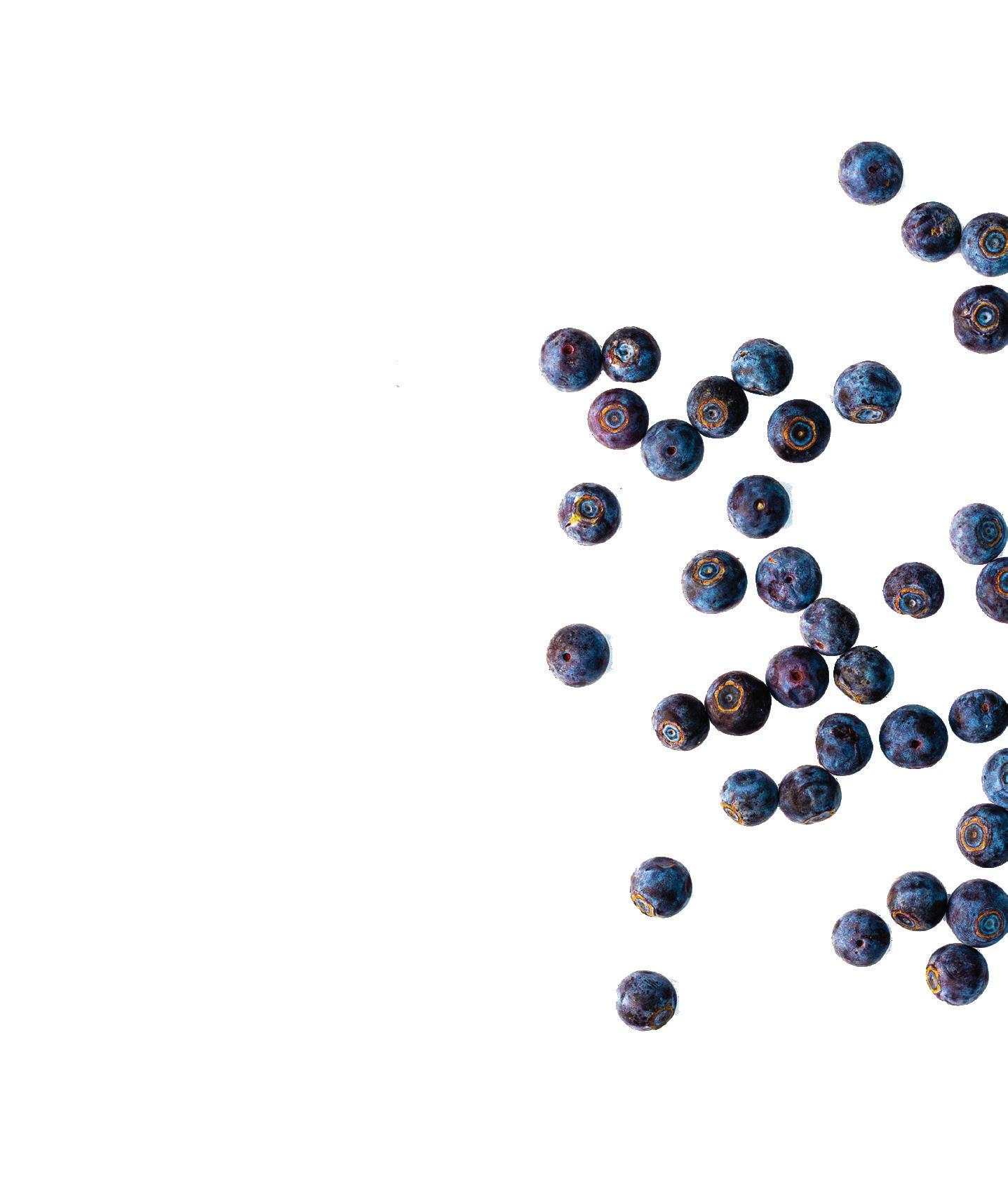

The PhytoRx program has five distinct partners that work together to promote improved health in a community. These partners are visually represented as wedges on the PhytoRx Wheel. Without each partner in place, the journey will be a little bumpy. Full participation will keep the program moving toward a healthier community.
In the next section, Exploring PhytoRx Roles, you’ll learn about each partner role. Each partner page includes space to brainstorm potential partners that are members of your community. Organizations and resources vary from community to community. It is wonderful if there are multiple entities that are interested in being a PhytoRx partner in a given role. The only fixed partner is the Healthcare Provider Training delivered by NC State University Plants for Human Health Institute.
• NC State University Plants for Human Health Institute HEALTHCARE PROVIDER TRAINING
• Health Department PRODUCE PRESCRIPTION
• Free or low-income clinic
• Private medical office
• Kitchen Tools
• Resources ONGOING PATIENT SUPPORT • Food Bank / Pantry • Food Co-op • Grocery Store • Farmers Market • Sliding Scale Market
Coordinator
• Registered Dietitian • Local healthy living program PATIENT EDUCATION
• NC Cooperative Extension
A PhytoRx Coordinator is not a spoke on the wheel, but is a key to organizational success and sustainability of the program. During program establishment, the Coordinator is the lead contact as partners are identified. They will coordinate the partners, finesse the organizational framework and oversee the program launch. County Extension Agents may initially fill the Coordinator role since the PhytoRx program is an Extension-developed initiative; however, anyone with a passion for a healthier community can lead the effort to establish PhytoRx. The Coordinator could change over time and could be an individual from any one of the community partner organizations.
HEALTHCARE PROVIDER TRAINING
ONGOING PATIENT SUPPORT
PRODUCE PRESCRIPTION
PATIENT EDUCATION
FOOD “PHARMACY”
Contact Cheri Granillo at cheri_granillo@ncsu.edu to get started.
Utilize the PhytoRx Guidebook to develop the PhytoRx program in your community.
Iredell County
Rockingham County
Campbell University
Contact PhytoRx Ambassador
Andrea Sherrill
& Consumer Sciences Agent
Cooperative Extension

PhytoRx Provider Training lays the groundwork that will empower healthcare professionals to confidently incorporate dietary guidance in their treatment plans. Provider training equips medical professionals with essential nutritional knowledge and the confidence to apply it effectively to improve the care and outcomes of patients with chronic conditions.
HEALTHCARE PROVIDER TRAINING
ONGOING PATIENT SUPPORT
PRODUCE PRESCRIPTION
FOOD “PHARMACY”
Provider / Practice commits to PhytoRx
PATIENT EDUCATION
NC State University Plants for Human Health Institute plus Physicians
Physician Assistants
Nurse Practitioners
Nurses
Provider must schedule and complete free online training course
Contact Cheri Granillo at cheri_granillo@ncsu.edu for scheduling info.
• Customizable template (see page 15)
Provider education to improve the understanding of the bioactive nature of phytochemicals is the key component differentiating PhytoRx from other produce prescription programs.
Traditionally, nutrition has been a minimal part of the standard course of study for most clinicians with the average student taking fewer than 20 hours of nutrition education out of about 200 hours of total coursework.3,8 However, as more is discovered and understood about the impact of phytochemicals on human health, many practitioners are seeking additional peer-reviewed guidance, like PhytoRx, that supports diet and behavior change to treat or prevent disease.
Providers can sign up for FRESH Rx, the PhytoMedicine newsletter, to stay up-to-date on happenings within the program.
Cheri Granillo, DNP, FNP-BC, is available to answer questions from healthcare providers even after the training. Letter of Introduction

PhytoRx is a lifestyle modification recommendation and treatment modality. If a provider were to advise a patient to “improve their diet,” then they can expand on that using the PhytoRx prescription pad as a patient education tool. The provider indicates the appropriate groups of foods or phytochemicals for the patient to focus on and offers a brief explanation. Healthcare providers might be prescribing berries for diabetes, or carrots for macular degeneration, for example.
HEALTHCARE PROVIDER TRAINING
ONGOING PATIENT SUPPORT
PRODUCE PRESCRIPTION
FOOD “PHARMACY”
PATIENT EDUCATION
Private Medical Office
Local Health Department
Free or Low-Income Clinic
Complete Provider Training (see pg. 10)
Stock exam rooms with PhytoRx prescription pads
Have a supply of patient resources to share when prescriptions are written
Prescribing providers must take the Healthcare Provider Training
Hang informational posters
Refer patient with produce prescription to Food “Pharmacy” and Patient Education partners
We have helped PhytoRx teams with nurse-led clinics, free clinics and federally qualified health centers. This program is flexible and can work in a variety of healthcare settings, including private practice.
Prescriptions can be faxed, emailed or hand-carried to the Food “Pharmacy” depending on what works best for your team.
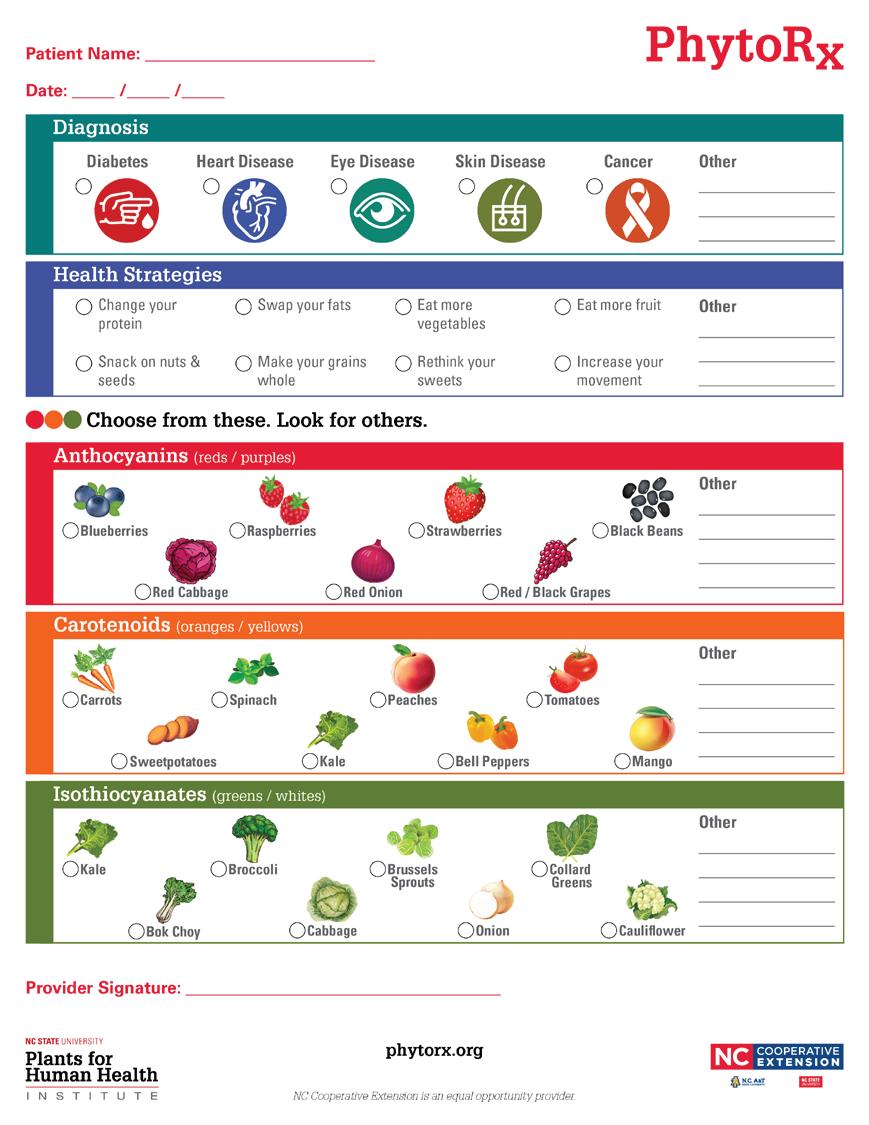
NEED HELP?
Make sure that patients understand the clinic will be sharing names, phone numbers and possibly relevant diagnoses with PhytoRx partners.

such as
and prescription pads.
Brainstorm ideas of potential partners in your community to write produce prescriptions.
This is a customizable sample letter to a prospective PhytoRx partner to fill the Produce Prescription role. This letter can be used to make initial contact with the potential partners – individual healthcare providers or healthcare clinics – you’ve brainstormed to introduce the PhytoRx program and goals. By identifying your shared interests and commitment to a healthier community, you can confidently follow up with further communication to discuss interest, answer questions or establish next steps.
This sample letter provides a template you can adapt to your specific needs. Find a downloadable version of this letter on the PhytoRx Resources page.

[Recipient’s Name]
[Recipient’s Title]
[Healthcare Clinic/Provider Name]
[Clinic Address]
[Date]
Dear [Clinic or Healthcare Provider Name],
As a valued healthcare provider in [your county or town], I would like to introduce you to PhytoRx, an innovative fruit and vegetable (phytochemical) prescription program developed by NC State University’s Plants for Human Health Institute and NC State Extension. PhytoRx bridges the gap between healthcare and nutrition by incorporating food as medicine principles into patient care.
What is PhytoRx?
PhytoRx is a food as medicine produce prescription program that helps healthcare providers and their patients navigate nutrition knowledge, produce access and recipe utilization. PhytoRx is designed to empower providers like you with science-based resources to prescribe plant-based nutrition interventions as part of a comprehensive healthcare plan. Through this program, providers and patients gain access to:
• Educational materials on phytochemicals and their health benefits.
• Guidance on produce prescriptions that encourage increased fruit and vegetable intake.
• Partnerships with local Extension agents and food hubs or markets to improve food accessibility.
Why Participate?
By implementing PhytoRx, your clinic can:
• Improve patient outcomes by integrating evidence-based nutrition strategies.
• Address chronic disease prevention and management with plant-rich dietary interventions.
• Strengthen community connections through partnerships that enhance food access.
• Receive support from NC State Extension experts to implement and evaluate the program effectively.
I would love to schedule a time to discuss how PhytoRx can benefit your patients and healthcare team. Please feel free to reach out at [Your Email] or [Your Phone Number] to set up a meeting.
Thank you for your dedication to patient-centered care. We look forward to collaborating with you to improve health outcomes through phytochemical-powered nutrition.
[Your Name]
[Your Title]
[Your Organization]
Patient load and limited appointment time typically prohibit a healthcare provider’s ability to offer comprehensive patient education to support diet improvement. NC Cooperative Extension and other nutrition education professionals deliver nutrition education suitable to support PhytoRx patients with the inclusion of fresh produce in their diet.
Every county in North Carolina has a Cooperative Extension office with a Family and Consumer Science (FCS) agent and many also have an EFNEP* educator. Classes offered by FCS agents typically include cooking demonstrations and food tastings to increase culinary knowledge and reduce any cultural barriers that may exist so that participants are confident in preparing foods in a healthy way.
*EFNEP stands for Expanded Food and Nutrition Education Program, a federally-funded program that serves low-income families and youth to improve their health and well-being through nutrition education.
NC Cooperative Extension Service
Registered Dietitian (RD)
Local Healthy Living Program
Contact your county FCS agent or EFNEP educator
Contact a local RD or nutrition professional who delivers educational programming. Contact healthy living program leaders such as a parrish nurse, YMCA staff, etc.
Many Extension and community nutrition programs will be suitable for the Patient Education piece of PhytoRx. Identify the economic and cultural needs of your community and choose the program that fits their needs.
Some options include:
• Med Instead of Meds
• Cook Smart, Eat Smart
• Steps to Health
• Fuel for Life
• Camp, Cook, Play!
• Families Eating Smart and Moving More
The Food “Pharmacy” is where patients will “fill” their produce prescription. This component of PhytoRx is flexible depending on what is available in the community and patient population needs. The patient may independently fill their prescription by making purchasing choices based on their produce prescription specifics, or staff at a Food “Pharmacy,” such as a food pantry, may be trained to supply foods from the produce prescription.
HEALTHCARE PROVIDER TRAINING
ONGOING PATIENT SUPPORT
PRODUCE PRESCRIPTION
FOOD “PHARMACY” PATIENT EDUCATION
Ask the Food “Pharmacy” to post signage that may assist in selecting prescribed phytochemicals. Determine the Food “Pharmacy” Partner that best suits your PhytoRx community.
Train volunteers and staff to recognize PhytoRx prescriptions and how to fill them.
Food Bank / Food Pantry
Food Co-Op
Grocery Store
Farmers Market
Sliding Scale Market

Scan for PhytoRx resources, such as signs and the sample letter of introduction.
Letter of Introduction
• Customizable template (see page 21)
Explore the PhytoRx Case Studies to spark ideas for securing Food “Pharmacy” partners (pages 24 - 26) Case Studies
Phytochemical Signs
Branded signage for your Food “Pharmacy” partners to display
While funding may seem like a “must have,” remember that the goal of this program is not to simply increase fruit and vegetable consumption for a finite period of time (which can happen when that increase is linked to financial subsidies of specific foods). Instead, PhytoRx is rooted in the education of a population to make health-based food choices every time they purchase food, with the knowledge that they are supporting optimal health, disease prevention and treatment.
Small grants can cover the price of fruits and vegetables identified in the prescriptions.
See page 30
If transportation is a challenge for your population, consider looking for a grant to cover the cost of a food delivery service (Ex: Instacart, DoorDash or UberEats).
Brainstorm ideas of potential Food “Pharmacy” partners in your community.
This is a customizable sample letter to a prospective PhytoRx partner to fill the Food “Pharmacy” role. This letter can be used to make initial contact with the potential partners you have brainstormed to introduce the PhytoRx program and goals. By identifying your shared interests and commitment to a healthier community, you can confidently follow up with further communication to discuss interest, answer questions or establish next steps.
This sample letter provides a template you can adapt to your specific needs. Find a downloadable version of this letter on the PhytoRx Resources page.
Digital Resources

Scan to access digital PhytoRx resources.
[Recipient’s Name]
[Recipient’s Title]
[Food Hub or Market Name]
[Food Hub or Market Address]
[Date]
Dear [Food Hub or Market Name],
As a vital resource for food security in [your community name], your organization plays a crucial role in ensuring individuals and families have access to nourishing foods. I would like to introduce you to PhytoRx, an innovative program developed by NC State University’s Plants for Human Health Institute and NC State Extension. PhytoRx is designed to increase access to fresh, nutrient-rich foods through produce prescriptions and nutrition education.
PhytoRx is a food as medicine initiative that connects healthcare providers, food hubs and community organizations to help individuals incorporate phytochemical-rich foods into their diets. Through this program, food hubs can:
• Expand fresh produce distribution to individuals with chronic disease risk factors.
• Receive educational resources to share with clients about the health benefits of plant-based nutrition.
• Strengthen partnerships with local healthcare providers who can refer patients in need of fresh, healthy foods.
Why Participate?
By joining PhytoRx, your food hub can support community health and chronic disease prevention through increased fruit and vegetable access while strengthening local food systems. You will be connected with local healthcare providers to serve food-insecure individuals who need nutrition support and those individuals will have access to educational tools and program resources from NC State University experts to offer culinary guidance.
I would love to discuss how PhytoRx can align with your food hub’s mission and amplify your impact in the community. Please feel free to reach out at [Your Email] or [Your Phone Number] to set up a meeting, or learn more about this community health initiative at PhytoRx.org.
Thank you for your dedication to fighting food insecurity and improving community health. We look forward to the opportunity to partner with you in making nutritious food more accessible to all.
[Your Name]
[Your Title]
[Your Organization]
Behavior change relative to dietary habits is difficult. A selection of branded “PhytoRx” kitchen tools serve as a visual reminder of the patient’s health goals, prescription purpose and the nutrition education they received.
HEALTHCARE PROVIDER TRAINING
ONGOING PATIENT SUPPORT
PRODUCE PRESCRIPTION PATIENT EDUCATION
FOOD “PHARMACY”
Submit number of patients participating and name of healthcare provider(s) to PhytoRx Registry and receive a measuring spoon for each PhytoRx participant.
Order additional kitchen tools to support your community program
Local Parks and Rec Department
Community Centers
Local nonprofits with additional education and hands-on programs (healthy cooking, gardening, exercise, etc.)
NC Cooperative Extension
Contact Cheri Granillo at cheri_granillo@ncsu.edu for ordering info.
Online Resources: PhytoRx Registry

Scan to access the PhytoRx Registry and submit participant information.
PhytoRx Recipes
The PhytoRx Recipe Booklet is available in English or Spanish.
PhytoRx Kitchen Tools
• Cutting board
• Spatula
• Reusable food container
• Measuring spoon
• Measuring cups
• Infusion water bottle
Patient resources can also come from your nutrition education programs. Do you have handouts that come with the Med Instead of Meds program or recipes from Steps to Health? These all help participants stay on track and make the program more sustainable after the initial implementation.
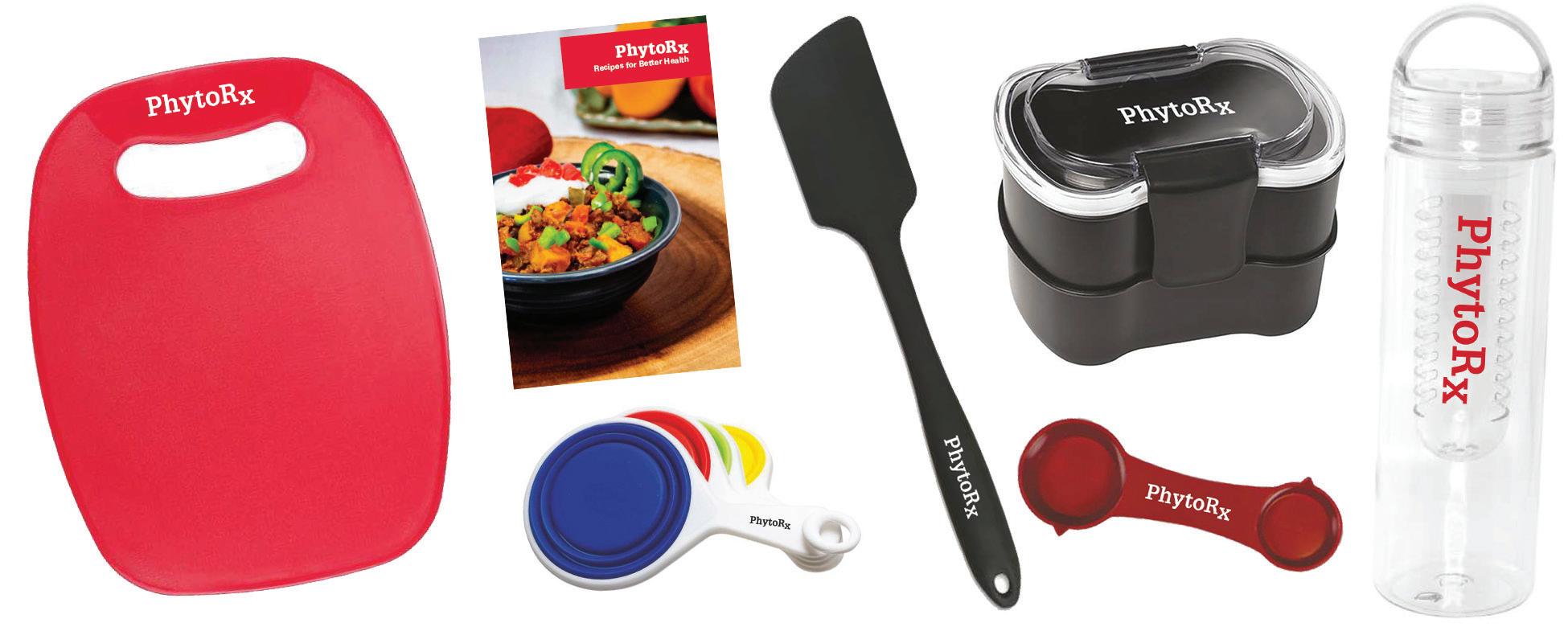
Brainstorm ideas of potential partners in your community to provide ongoing support.
In a PhytoRx program, PHHI Extension partnered with HealthReach Community Clinic, FeedNC and NC Cooperative Extension-Iredell County. This deployment of the program is just one example of how to support providers and participants; we recognize each community is different and may need to adjust the program and partnering organizations to fulfill the program objectives.
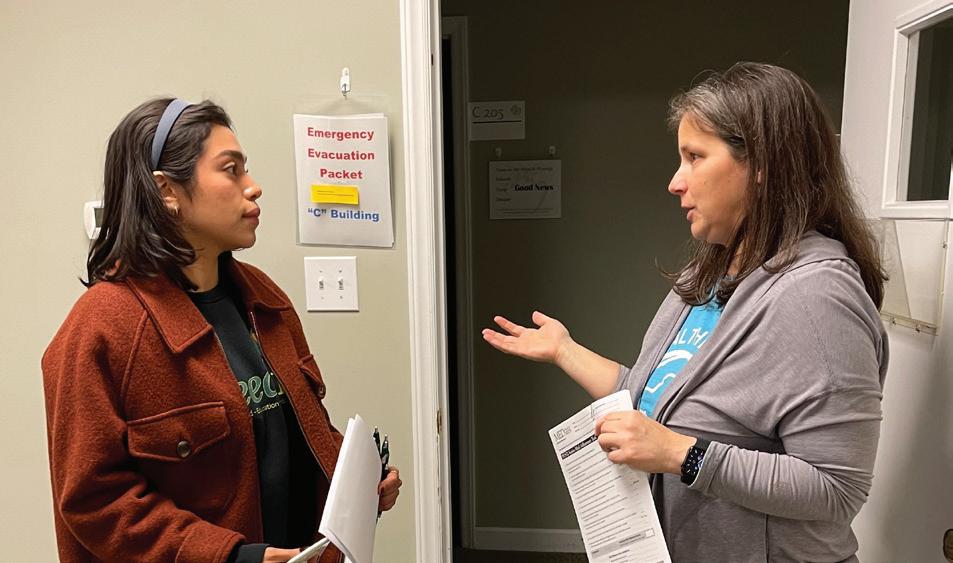
Medical providers at HealthReach (a free clinic for the uninsured) were trained by Cheri Granillo, FNP, in the latest research supporting lifestyle medicine and phytochemicals, how to use the PhytoRx pad, and how to enroll patients to participate.
HealthReach wrote PhytoRx prescriptions for patients with cardiovascular disease, diabetes, and eye and skin issues. These health complications can benefit from phytochemicals found in certain fruits and vegetables.
Patients brought their PhytoRx to FeedNC, a local food distribution center on a certain day of the week to receive a free box of fresh produce.
Each week, Iredell County Family and Consumer Sciences Extension agent Andrea Sherrill, RD, covered one of the Med Instead of Meds seven steps to health. This is ideally done through in-person gatherings to build community support for a healthy lifestyle and share lived experiences, but virtual classes are another option.
Patients were given a kitchen tool (branded with PhytoRx) at each class and a cookbook with budget-friendly, healthy recipes that further demonstrate the ease of incorporating nutritious behavior changes to support better health.
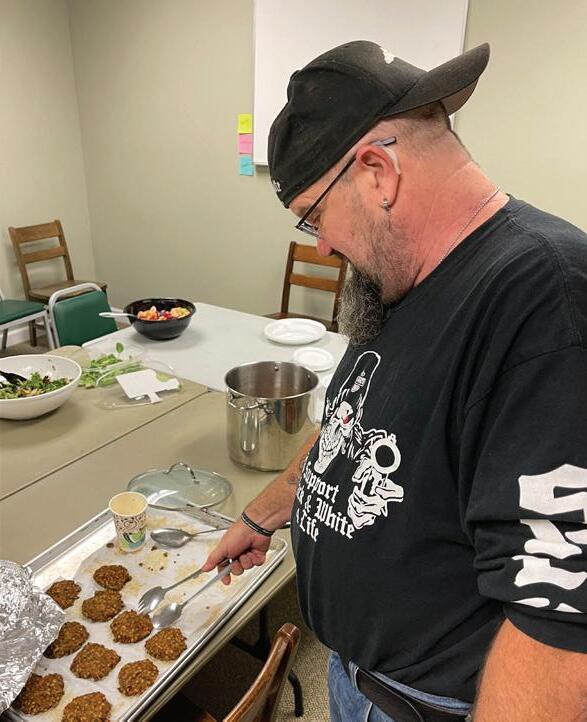
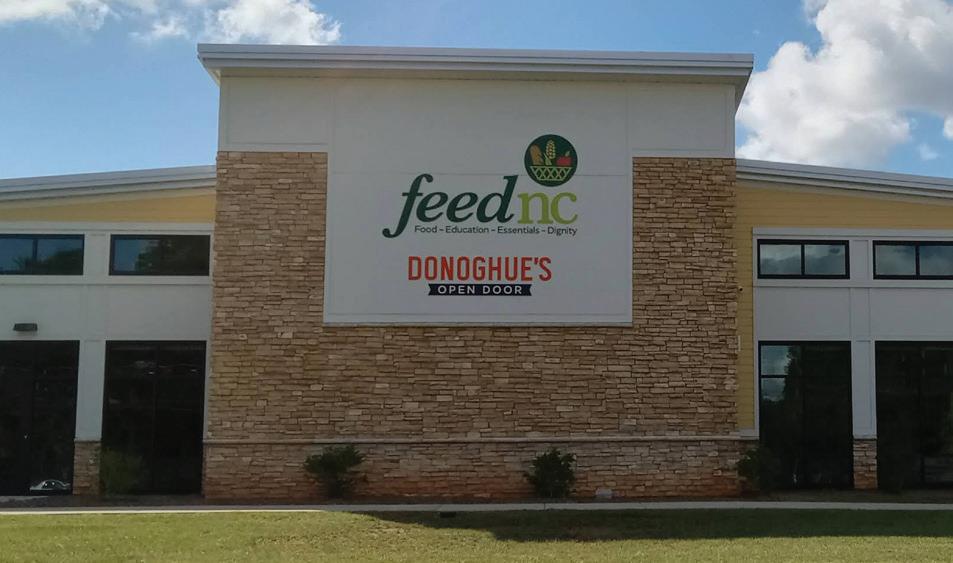
Rockingham County Family and Consumer Sciences Extension agent Jordan Jeffries-James heard about PhytoRx and reached out to Cheri Granillo to talk about how it might work in Rockingham County.
L.O.T. 2540 became a PhytoRx hub filling multiple partner roles. L.O.T. 2540 is a multi-pronged relief agency located in Stoneville, NC, in the western part of Rockingham County. They provide hot meals though “The Well Cafe,” grocery items through Mobile Pantries and a Fresh Produce Market, healthcare resources in partnership with Cone Health and UNCG School of Nursing, as well as community classes for their clients.

The on-site nurse at L.O.T. 2540 was trained in the PhytoRx curriculum (Healthcare Provider Training). She was able to issue Produce Prescriptions and guide food choices from the Fresh Produce Market (Food “Pharmacy”). She referred participants to a Med Instead of Meds class (Patient Education) held at the L.O.T. 2540 headquarters that was led by Jordan.
He held weekly classes to connect food choice and preparation with the food that was available in a given week through the food pantry. Each week, a PhytoRx-branded kitchen tool was given to the participants to better equip them to follow through with the food choice principles they were learning so that new healthy habits could be cemented in their kitchen routines.
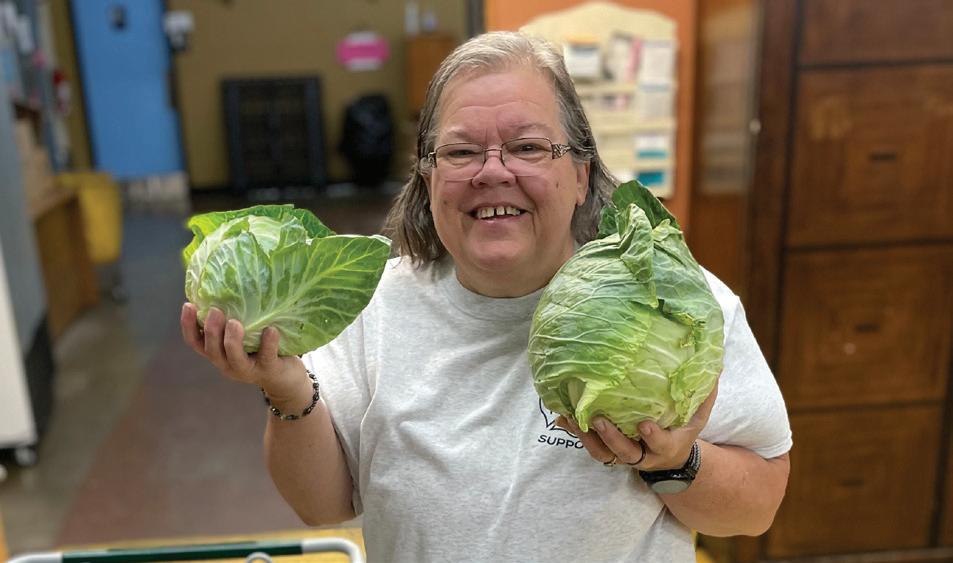
The medical students at Campbell University, located in Buies Creek, NC, run a free clinic for local residents. One mission of this student-led clinic is the development of wellness programs for patients focusing on nutrition, fitness and behavioral education.
Several of the students and licensed providers completed the Healthcare Provider Training and are implementing the PhytoRx program with the help of Harnett County Family and Consumer Sciences agent Shannon Adcock.
Patients of the clinic whose diagnoses warrant a produce prescription are connected with a local food hub, the DUMA Food Pantry, that provides the participating patients with fresh produce. Shannon implemented the Med Instead of Meds course, with tastings at each class, to enhance the adherence to the program.

Andrea Sherrill • MS, RD, LDN
Family & Consumer Sciences Agent NC Cooperative Extension - Iredell County andrea_sherrill@ncsu.edu

The PhytoRx program has already been implemented successfully in several counties. Andrea Sherrill, a registered dietitian and FCS agent in Iredell County, helped launch the initial program and is the PhytoRx FCS Ambassador.
She has helped spread the word about PhytoRx, especially among FCS colleagues and has advised FCS agents as they launch PhytoRx programs in the communities they serve. She is ready to help your community, too!
These partners can be approached in any order. Fill in partner names as you secure a commitment in each category.
PhytoRx Coordinator
Healthcare Provider Training Contact
Produce Prescription
NC State University - Plants for Human Health Institute Cheri Granillo, 704-250-5492, cheri_granillo@ncsu.edu
Your PhytoRx Partners are likely already working independently in your community. Help build a network among the partners around this community health initiative so that their impact can be multiplied.
Share the My PhytoRx Partners page customized for your community with each partner. Include each partner name/organization, a contact person and contact information (phone/email) to encourage connection.
Other Partnership Connection ideas...


(like More in My Basket) to make this more sustainable?
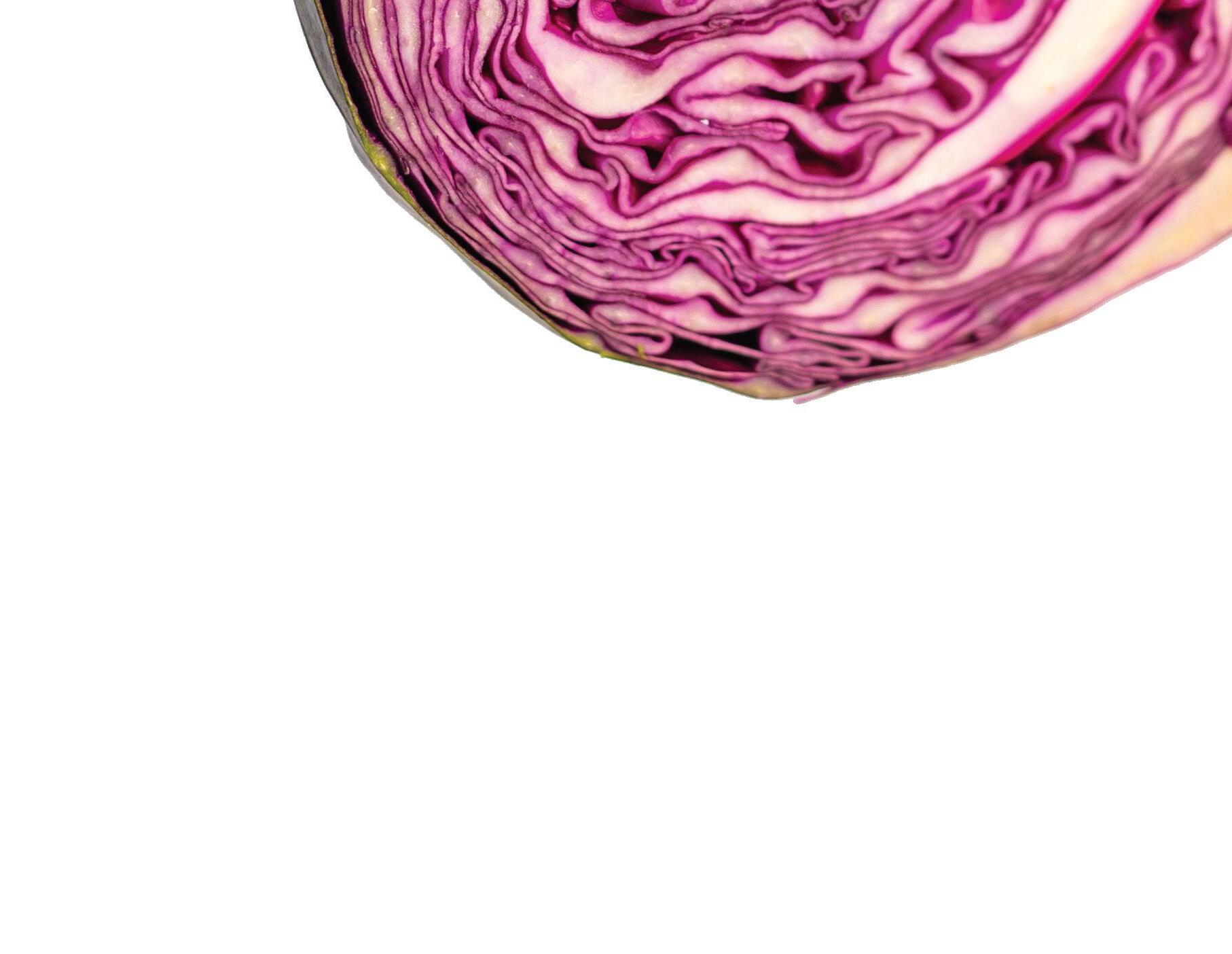
Providers are encouraged to follow up on patient utilization of PhytoRx in the same way they would evaluate compliance of any medical advice/prescription. Providers may decide a different produce prescription is warranted based on health changes from visit to visit. There may be documentation tools available in your EHR (Electronic Health Record) system to help keep data on your patients as they move toward optimal health with the PhytoRx program.





Data collection for the PhytoRx program is flexible and customizable for every community. The coordinator can work with the team to decide what data, if any, is important in their community before implementing the program. Plan to collaborate with all the PhytoRx partners to share data as appropriate. Each entity may have their own data points or surveys to collect. Make sure all parties understand that data may be shared and
It can be helpful to collect biomarker data such as weight, blood pressure and lab values to compare over time.
Keeping attendance, using pre- and post- course knowledge surveys, habit tracking or implementation assessments may help secure grant funding or simply motivate active participation. Continue to collect data that has been beneficial in past offerings of nutrition education classes.
Providers must complete the “Post Survey” for CME credit. This survey helps the PhytoRx team evaluate the educational goals and make adjustments as needed.
1. Jones, D. E., Carson, K. A., Bleich, S. N., & Cooper, L. A. (2012). Patient trust in physicians and adoption of lifestyle behaviors to control high blood pressure. Patient Education and Counseling, 89(1), 57–62.
2. Lee-Kwan, S. H., Moore, L. V., Blanck, H. M., Harris, D. M., & Galuska, D. (2017). Disparities in state-specific adult fruit and vegetable consumption—United States, 2015. Morbidity and Mortality Weekly Report, 66(45), 1241.
3. Cassidy-Vu, L., & Kirk, J. (2020). Assessing the need for a structured nutrition curriculum in a primary care residency program. Journal of the American College of Nutrition, 39(3), 243-248.
4. Hager, K., Du, M., Li, Z., Mozaffarian, D., Chui, K., Shi, P., Ling, B., Cash, S., Folta, S., & Zhang, F. F. (2023). Impact of produce prescriptions on diet, food security, and cardiometabolic health outcomes: a multisite evaluation of 9 produce prescription programs in the United States. Circulation: Cardiovascular Quality and Outcomes, 16(9).
5. Li, Y. F., Zhang, L. X., Xiao, X., Liao, H. Y., Wang, J., & Tang, X. L. (2021). Multimodal nutrition education for cancer patients. Journal of Nutritional Oncology, 6(2), 57-63.
6. Kahin, S. A., Murriel, A. L., Pejavara, A., O’Toole, T., & Petersen, R. (2020). The high obesity program: a collaboration between public health and cooperative extension services to address obesity. Preventing Chronic Disease, 17.
7. Fagnan, L. J. (2017). Moving upstream—health extension and primary care. The Journal of the American Board of Family Medicine, 30(1), 10-12.
8. Adams, K. M., Kohlmeier, M., & Zeisel, S. H. (2010). Nutrition education in U.S. medical schools: Latest update of a national survey. Academic Medicine: Journal of the Association of American Medical Colleges, 85(9), 1537–1542.Cardiovascular Quality and Outcomes, 16(9).

Find links to citations on the PhytoRx Resources webpage.





